Una Fundación de Interés Privado es una persona jurídica en la cual una o más personas, denominadas Fundador, aporta bienes que constituirán el patrimonio de la entidad, para que sean administrados en atención a los objetivos de la fundación y en el mejor interés de los beneficiarios de la misma.
En Panamá las Fundaciones de Interés Privado son regidas por la Ley 25 de 12 de junio de 1995.
Las Fundaciones de Interés Privado son una figura jurídica ideal para la planeación y administración de “Patrimonios”, entendiéndose por este tanto los bienes muebles como inmuebles, lográndose así segregar parcial o totalmente parte del patrimonio de su Fundador.
La disposición de bienes post-mortem a través de una Fundación, es uno de los mayores atractivos que posee esta figura jurídica, en comparación de entablar un costoso proceso testamentario. Iguales y positivos resultados se aplican utilizando las Fundaciones para la adquisición de bienes.
¿Qué tipo de bienes se pueden aportar a una Fundación de Interés Privado?
A una Fundación de Interés Privado se pueden aportar todo tipo de bienes y en cualquier momento a partir de su incorporación. Los bienes de la fundación se pueden mantener en cualquier lugar del mundo.
¿Quiénes conformarán el Consejo Fundacional?
El Consejo Fundacional puede estar conformado por un solo miembro, si dicho miembro es una persona jurídica (sociedad) o por tres (3) personas naturales, de cualquier nacionalidad.
¿Quiénes son los beneficiarios de la Fundación de Interés Privado?
Los beneficiarios son aquellas personas, naturales o jurídicas, que tienen una expectativa de derecho sobre el patrimonio de la fundación, según lo que se estipule en los reglamentos de la fundación (los cuales se emiten de manera privada y no requieren su inscripción en el Registro Público para su validez), según sean modificados de tiempo en tiempo.
¿Cuáles son los usos más comunes de una Fundación de Interés Privado?
Básicamente una Fundación de Interés Privado puede servir para los mismos propósitos que un trust o un fideicomiso. Mencionaremos, a continuación, los principales fines que pueden tener:
a) Alternativa al testamento (instrumento alternativo al testamento de transferencia privada de bienes del fundador a sus beneficiarios o herederos). La Fundación de Interés Privado ofrece mayor flexibilidad que el testamento, sustituyendo a este, y permitiendo eludir restricciones normativas del país del fundador (relativos a los derechos de consanguinidad forzada, como las leyes que obligan a entregar un porcentaje mínimo de la herencia a los familiares en primer grado, o que impiden acceder a la herencia al cónyuge viudo o las hijas, entre otras normas que pueda haber en su país de residencia).
Aparte tiene determinadas ventajas de privacidad (el reglamento donde se determinan los Beneficiarios no es un documento público, no hay que abrirlo ante un notario o un juez, etc.). Usualmente el fundador es el beneficiario mientras vive, pero deja fijado qué hacer a su muerte. La fundación permite que los deseos del fundador, establecidos como fines de la fundación, se cumplan tras su muerte. El fundador puede disponer que cuando fallezca se distribuyan los bienes de la fundación de un modo dado, o que cuando un hijo (o varios) cumplan una edad determinada reciban determinados fondos o bienes, puede fijar entregas periódicas –anuales o mensuales– de dinero a estos, puede fijar partidas específicas para posibilitar la educación en determinados centros, etc.
b) Fines familiares (instrumento de planificación de rentas o del patrimonio familiar). Una Fundación de Interés Privado puede garantizar pensiones, rentas vitalicias, fondos para la educación de los hijos, para el mantenimiento de menores o incapaces, o servir de beneficiaria y canalizadora de una póliza de seguros, etc.
El fundador puede disponer que, en vida se distribuyan rentas o bienes de la fundación de un modo dado, fijando rentas periódicas para estos, partidas para estudios, seguros o asistencia médicas, etc. Asimismo, puede establecer que no obstante viva el fundador, cuando los hijos cumplan una edad determinada puedan recibir unos fondos adicionales o incluso determinados bienes.
c) Protección de activos. Por un lado, el patrimonio de una Fundación de Interés Privado es por ley inembargable, excepto en el caso de deudas contraídas por la propia fundación. Por otro lado, los bienes de la fundación constan como propios de esta (y no del fundador).
Al crear una fundación el fundador separa bienes de su patrimonio que incluye en la fundación, pasando estos a ser legalmente autónomos de los que permanecen en su patrimonio, de modo que sus eventuales acreedores no puedan hacerse con ellos.
Estos bienes solo responden de deudas o responsabilidades de la propia fundación.
Incluso cuando no prevea tener responsabilidades o problemas legales, puede interesarle al fundador, por motivos de seguridad, no aparecer como titular de todo su patrimonio, permitiéndole el mecanismo de la Fundación de Interés Privado ocultar ante terceros parte de sus bienes.
d) Alternativa a una sociedad Holding. La Fundación de Interés Privado puede poseer acciones y títulos de otras entidades o sociedades. Asimismo, puede administrar inversiones en bolsa, fondos de inversión, etc. y todo ello con un gran nivel de privacidad. La fundación puede ser tenedora de títulos valores y percibe como ente con personalidad jurídica sus rendimientos.
¿Cuál es la diferencia entre una Fundación de Interés Privado y una sociedad anónima?
La principal diferencia es que la sociedad anónima es generalmente utilizada para realizar actividades comerciales o con fines de lucro mientras que la fundación, como hemos indicado, no puede realizar estas actividades de manera habitual ni directamente.
Una sociedad anónima sí tendrá “dueños”, que son sus accionistas, a quienes la sociedad les emite un certificado de acciones o de participación para acreditar esta condición. La fundación no tiene socios ni accionistas, sino beneficiarios designados en el reglamento de la fundación, con las características indicadas en este documento.
¿Cuál es la diferencia entre una Fundación de Interés Privado y un Fideicomiso?
La principal diferencia entre una Fundación de Interés Privado y un Fideicomiso es que la primera cuenta con personalidad jurídica propia, mientras que el Fideicomiso es un contrato o acto jurídico.
Como consecuencia de ello, la fundación puede adquirir obligaciones y ejercer sus derechos por sí misma, mientras que el fideicomiso lo hace a través del fiduciario.
El fiduciario, quien tiene la obligación de garantizar el cumplimiento de los objetivos del fideicomiso, debe ser un tercero con licencia emitida por la Superintendencia de Bancos de la República de Panamá, mientras que el Consejo de la Fundación no requiere autorización o licencia para la administración del patrimonio de la fundación.
ANALYSIS OF PANAMA’S PRIVATE INTEREST FOUNDATIONS
A Private Interest Foundation is a jurisdictional persona in which one or more persons, called the Founder, contribute assets that will constitute the patrimony of the entity, to be administered in accordance with the objectives of the foundation and in the best interest of its beneficiaries.
In Panama, Private Interest Foundations are governed by Law 25 of June 12, 1995.
Private Interest Foundations are an ideal legal figure for the planning and administration of «Patrimony», understood as both movable and immovable property, thus achieving partial or total segregation of part of the patrimony of its Founder.
The disposition of post-mortem assets through a Foundation is one of the greatest attractions of this legal figure, as compared to initiating an expensive probate process. Equal and positive results are applied using the Foundations for the acquisition of goods.
What types of assets can be contributed to a Private Interest Foundation?
All types of assets can be contributed to a Private Interest Foundation at any time after its incorporation. The foundation’s assets can be held anywhere in the world.
Who will make up the Foundation Council?
The Foundation Council can be formed by a single member, if such member is a legal person (company) or of three (3) natural persons, of any nationality.
Who are the beneficiaries of the Private Interest Foundation?
The beneficiaries are those persons, natural or legal, who have an expectation of right over the assets of the foundation, as stipulated in the regulations in the foundation´s bylaws (which are issued privately and do not require registration in the Public Registry for their validity), as amended from time to time.
What are the most common uses of a Private Interest Foundation?
Basically, a Private Interest Foundation can serve the same purposes as a trust or trust. We will mention, below, the main purposes they can serve:
a) Alternative to the will (alternative instrument to the will of private transfer of assets from the founder to his beneficiaries or heirs). The Private Interest Foundation offers greater flexibility than the will, substituing the latter, and allowing the circumvention of regulatory restrictions in the founder’s country (related to the rights of forced consanguinity, such as laws that forcé to deliver a minimum percentage of the inheritance to be given to first-degree relatives, or that prevent access to the inheritance to the widowed spouse or daughters, among other rules that may be in place in your country of residence).
In addition, it has certain privacy advantages (the regulation where the Beneficiaries are determined is not a public document, it does not have to be opened before a notary or a judge, etc.). Usually the founder is the beneficiary while he lives, but he leaves what to do at his death. The foundation allows the founder’s wishes, established as the purposes of the foundation, to be fulfilled after his death. The founder may arrange that when he dies the assets of the foundation are to be distributed in a certain way, or that when a child (or several) reach a certain age they receive certain funds or assets, he may fix periodic payments – annual or monthly – of money to them, he may set specific items to enable education in certain centres, etc.
(b) Family purposes (income or family wealth planning instrument). A Private Interest Foundation can guarantee pensions, annuities, funds for the education of children, for the maintenance of minors or incapacitated persons, or serve as a beneficiary and channeler of an insurance policy, etc.
The founder may arrange that, during his lifetime, income or assets of the foundation be distributed in a given way, fixing periodic incomes for these, items for studies, insurance or medical assistance, etc. It can also provide that even if the founder is alive, when the children reach a certain age, they can receive additional funds or even certain assets.
(c) Asset protection. On the one hand, the assets of a Private Interest Foundation are by law non-seizable, except in the case of debts contracted by the foundation itself. On the other hand, the assets of the foundation are recorded as belonging to the foundation (and not to the founder).
By creating a foundation, the founder separates assets from his patrimony that he includes in the foundation, making them legally autonomous from those that remain in his patrimony, so that his eventual creditors cannot take them over.
These assets are only responsible for debts or liabilities of the foundation itself.
Even when he does not foresee having responsibilities or legal problems, it may be in the founder’s interest, for security reasons, not to appear as the owner of all his assets, allowing him the mechanism of the Private Interest Foundation to hide part of his assets from third parties.
d) Alternative to a Holding company. The Private Interest Foundation may own shares and securities of other entities or companies. U´can also manage investments in the stock market, mutual funds, etc., all with a high level of privacy. The foundation may hold securities and receives its returns as an entity with legal personality.
What is the difference between a Private Interest Foundation and a corporation?
The main difference is that the corporation is generally used to carry out commercial or for-profit activities while the foundation, as we have indicated, cannot carry out these activities on a regular or direct basis.
A corporation will have «owners», which are its shareholders, to whom the company issues a certificate of shares or participation to evidence this status. The foundation does not have partners or shareholders, but rather beneficiaries designated in the foundation’s bylwas, with the characteristics indicated in this document.
What is the difference between a Private Interest Foundation and a Trust?
The main difference between a Private Interest Foundation and a Trust is that the former has its own legal personality, while the Trust is a contract or legal act.
As a consequence, the foundation can acquire obligations and exercise its rights by itself, while the trust does so through the trustee.
The trustee, who has the obligation to guarantee the fulfillment of the objectives of the trust, must be a third party with a license issued by the Superintendence of Banks of the Republic of Panama, while the Foundation Board does not require authorization or license for the administration of the foundation’s assets.















